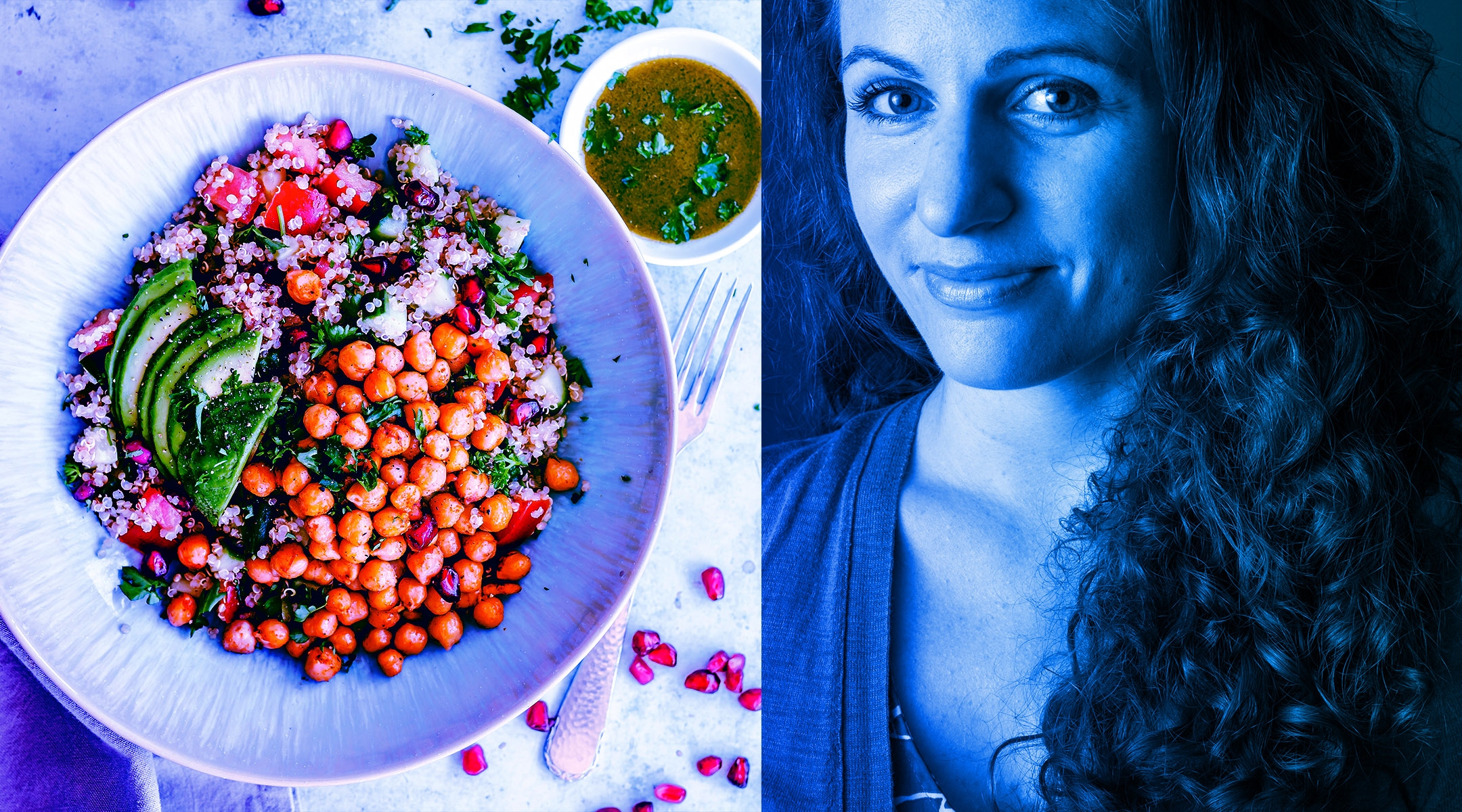LOS ANGELES (JTA) — Last year I wrote about how, as we come to terms with the existential threat of climate change, our joyous occasions will shift in both spirit and practice — including the food we eat and how it is produced. The same is true in the wake of coronavirus.
Thanks to a surge of global efforts to end the pandemic as fast as humanly possible, we’ll break bread at Shabbat and cook food for our neighbors, families and friends again — probably the act I’ve missed more than any other. And when we do, it will be a new opportunity to make different choices about what’s on the menu.
Right now, I’m deeply concerned that there is so little focus on what specialists in infectious disease have explained we need to do to prevent another pandemic in the future.
Many of our ongoing policies concerning industrial agriculture all but guarantee another pandemic, possibly one that is magnitudes worse. The good news is that we know how to better prevent pandemics. To succeed we need to focus on future threats now, before it’s too late.
Wuhan’s wet markets unmasked our troublingly dissonant relationship with wildlife and rightly deserve condemnation. But as so many news articles are revealing, factory farms are breeding grounds even more ripe for transmitting deadly zoonotic diseases. Industrial poultry farms are uniquely suited for generating new pathogens — in fact, most of the influenza viruses with pandemic potential deemed “of special concern” by the CDC arose from commercial poultry operations.
We’ve known for a long time that breeding animals to the brink of their genetic and physiological limits, raising them in confinement and keeping them alive with constant doses of antimicrobials pose outsize risks to human communities. That said, we may have underestimated just how big those risks are.
In a recent op-ed in The Guardian, my colleagues Aaron Saul Gross and Jonathan Safran Foer asked readers to imagine a situation in which “our military leaders told us that almost every terrorist in recent memory had spent time in the same training camp, but no politician would call for an investigation of the training camp. Imagine if we knew that those terrorists were developing weapons more destructive than any that has been used, or tested, in human history.”
They conclude: “This is our situation when it comes to pandemics and farming.”
In a Jewish context, you might say that we’ve bent if not broken the blessing of human agricultural skill. No one touring (or reading details about) a factory farm could possibly describe it as an actualization of God’s work. Yet Jewish traditions impel us to make our lives — from the prayers we sing to the food we eat — an actualization of divine intention.
Tackling the problem of industrial animal agriculture is a crucial form of the preventive medicine that we are commanded to practice. We must do our part to remove this very real peril, and the time to begin is now, when the whole world is experiencing the potential consequences.
It would be disastrous if the admitted immensity of the task before us paralyzed us into inaction. We should remember that even dramatic changes occur incrementally and that we are not alone.
More people and more leaders are talking about reforming farming than ever before. We can start with our own daily choices, and we can start considering what we’ll do differently when we’re back in our institutional and communal settings. We can start talking now about how to reduce our own community demand for the products most tightly linked to the creation of pathogens with pandemic potential, like industrial poultry (that’s 99% of all birds sold, including kosher). We can ask if it is time to replace some — or even all — of the animal products served at our religious and communal institutions with plant-based alternatives or at least with meat, dairy and eggs verified to be from animals raised outside the factory farming system.
Change can be as simple as replacing a single animal product, like swapping the cow’s milk on our cereal and in our beverages for plant-based milks. It can be a healthier rhythm of eating like Jonathan Safran Foer’s call to be vegan before dinner. It can be a new eating identity like reducetarian, flexitarian, vegetarian or vegan. And it can rise to the communal level, beginning a conversation with your local Jewish community institutions to create new food policies and ultimately a new normal for the food we eat.
This piece is a part of our series of Visions for the Post-Pandemic Jewish Future — click here to read the other stories in this series. Use #JewishFuture to share your own ideas on social media. If you’d like to submit an essay for consideration, email opinion@jta.org with “Visions Project Submission” in the subject line.
JTA has documented Jewish history in real-time for over a century. Keep our journalism strong by joining us in supporting independent, award-winning reporting.







